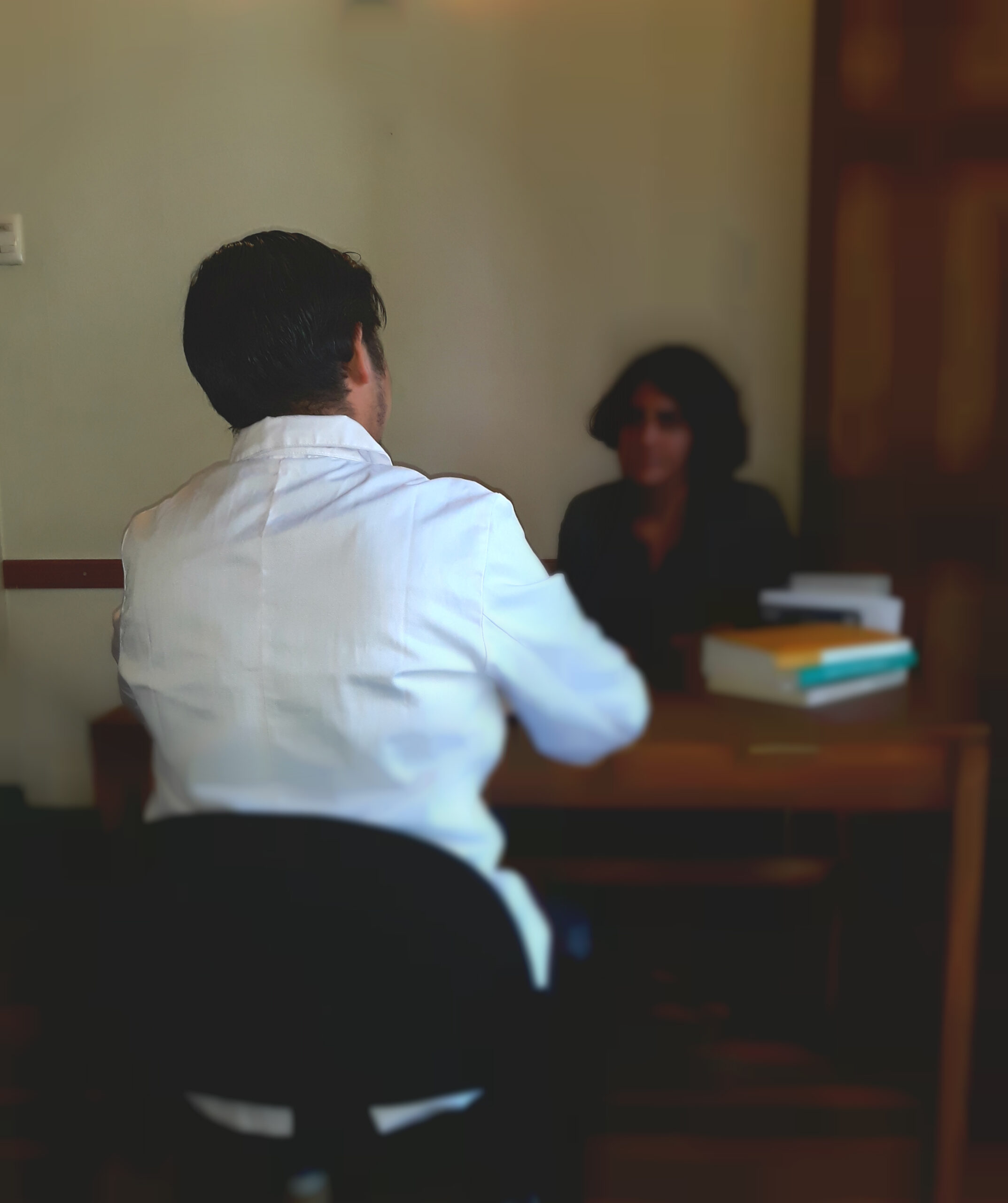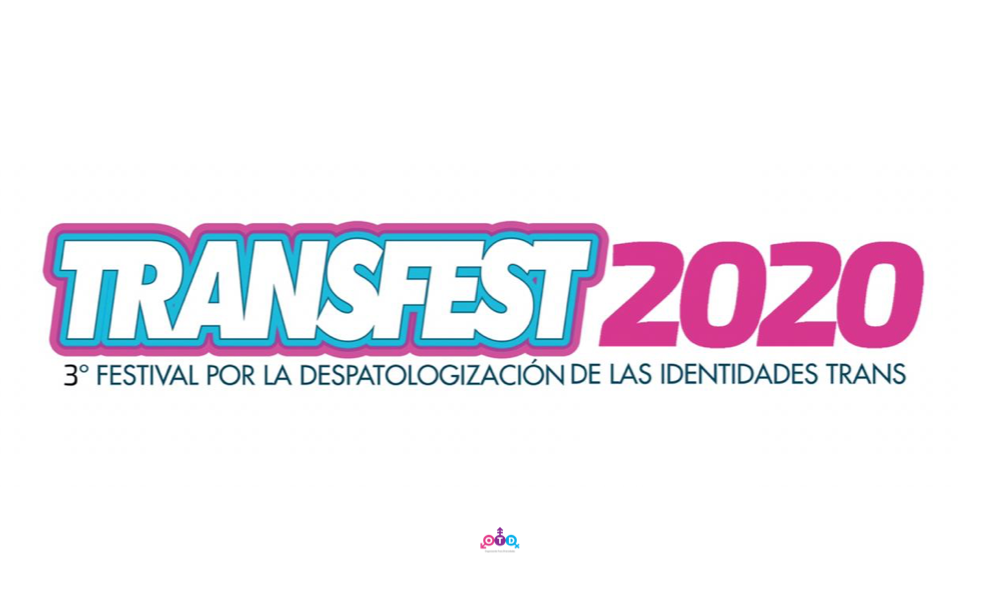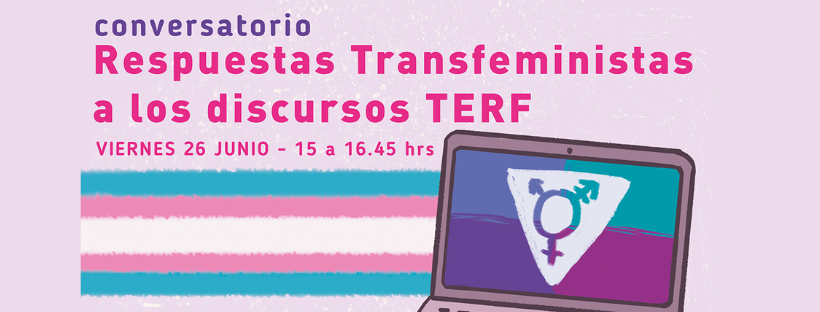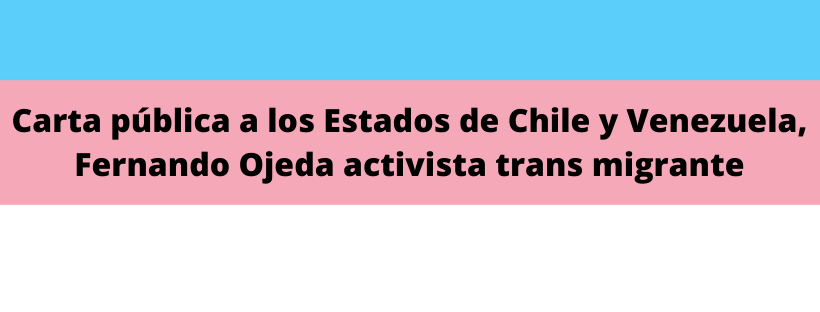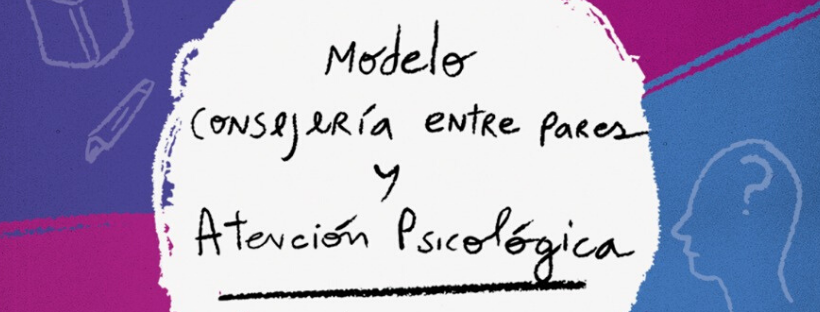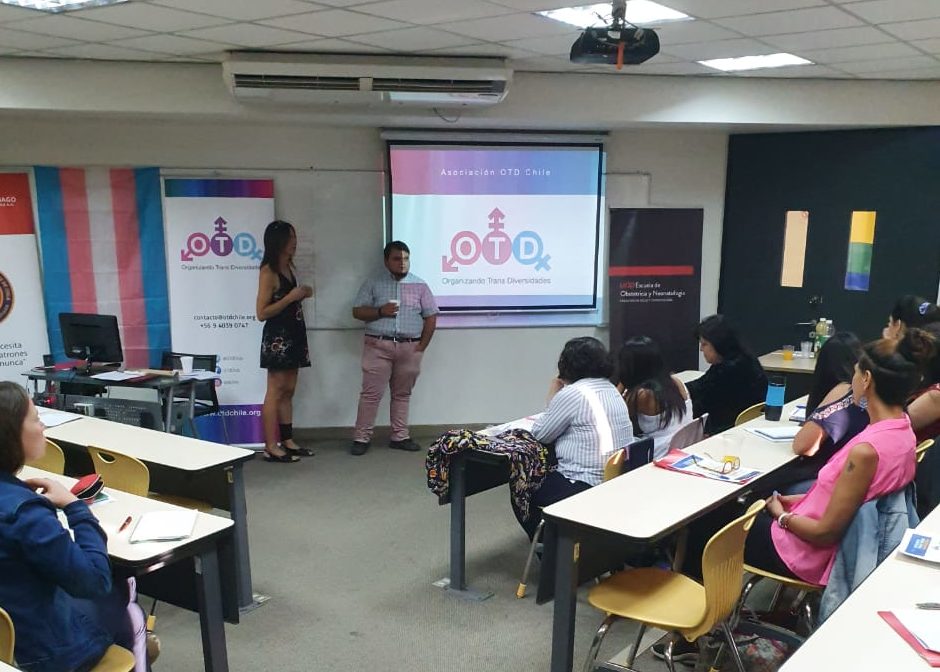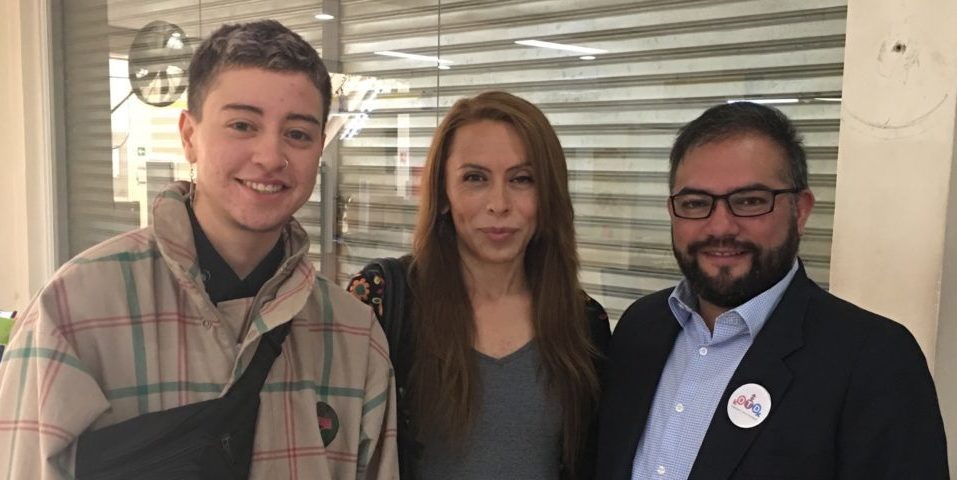Five doctors that for different reasons have come closer to the transgender subject, share their experiences about how it is and how it should be the health care for trans people. Some of them defend total depathologizing of identities and others for having certificates that confirm the identity to avoid damages.
From their side they share medical information and recognize that they’ve never seen a ‘regret’ case. Everyone has worked for the health care right and recognizing trans people, however, there is still no agreement on how medicine should participate among their lives. The psychiatrists Ricardo Aguayo and Rodrigo Sierra, GP Javi and the family doctor Camilo Bass and the endocrinologist Enzo Devoto share their experiences.
Autodidactic Formation
The psychiatrist Ricardo Aguayo works autodidactic on his consult and because he was interested on diversity got into the subject. The deliver of certificates that confirm the trans identity so people can have access to medical treatments. His independent and autodidactic work has let him participate on conventions and scientific committees.
The doctor Javi is a trans and non binary person who has recognized their identity, and knowing the medical world expresses their opinion on how gender diversity is treated on undergraduate formation.
Camilo Bass, family doctor and vicepresident of the Metropolitan School of Doctors, was part the first trans program of the N°1 physician’s office of Santiago, in charge of the Central Metropolitan Health Care Service created in 2008 and it lasted two years. There along with a psychologyst, was part of a pilot in which participated about 50 trans people who were derived to the specialties they needed to modify their gender expressions.
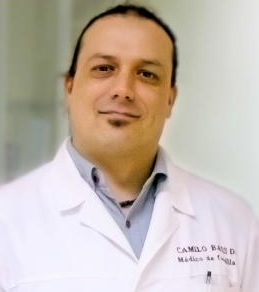
Camilo Bass, Family GP and Vicepresident of Colegio Médico de la Región Metropolitana.
The endocrinologist Enzo Devoto entered into the subject on the 70’s, and since then he knows and treat trans people who need their hormone replacement theraphy. He has seen the evolution of identity recognition, and even though he’s retired from public health care service, he particularly keeps atending people.
The child and youth psychiatrist Rodrigo Sierra, works at the attention center Espacio Seguro and part of his specialization at the Ackerman Institute of New York where he was able to know an integral attention for transgender people, though his sensibilation about the subject started when he participated in organizations of the civil society of gender and sexual diversity.
Almost all of them agree that formation at the schools of medicine about the gender diversity subject is non existent. Javi, who is the latest graduated from the major, explains that on their school, sexuality is practically reduced to the treatment of VD, and centers of students are the ones taking these subjects and socializing them.
‘The teaching of medicine is very heteronormative, it is undertaken that the partner of a woman is a men, and almost every question is oriented in that way’, explains. The experience of Camilo at the Universidad de Concepción wasn’t very different, when he took over the pilot program as a doctor, he had to get into his different preschool notes, and found just one paragraph in a text of 250 pages.
The same thing happened to Ricardo and Enzo, who do have years of experience attending trans people. ‘Sexology teaching in medicine has been very bad, and it still is very bad’, explains the endocrinologyst, who cite studies showing that just a 5% of all doctors has listened the word transgender, and almost anyone has had the oportunity during their formation to know a trans person.
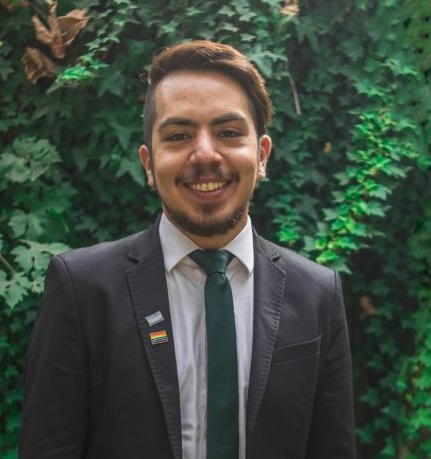
Rodrigo Sierra, child and youth psychiatrist of Espacio Seguro.
On his behalf, to Rodrigo, colleagues of other specialties have rejected certificates of trans people because they do not enter in what he/her/they as a professional believe must be their medical practice. ‘If in psychiatry there’s little conscience of the political and social rol that the specialty has and in other specialties there’s nothing’, says.
Gender identity can be diagnosed?
Doctors are used to seek pathologies, it is the only way in which they can practice their profession and help a person to heal. However, in trans people case there is nothing to heal, but they do require medical benefits and a treatment with equality of attention.
All doctors interviewed agree that it is not a pathology, though they do have overtones to recognize a trans identity and how to open paths so they can have access to hormone treatments. From their trans experience, Javi declares for a psychological accompaniment or a volunteer psychiatrist without certification, so a person can have access to medical benefits to change their appearance in terms of their gender identity. For instance, if their transition is masculinity, they can have hormones with testosterone.
Camilo believes in an attention model focused on depathologizing the identity to protect the access to health care. He proposes change the paradigm so every person can have a GP who knows their health history, and if the person has a trans identity, this professional can ensure them the access to treatments and adequate specialties. Though he recognizes it is far from the ideal we have in Chile.
Rodrigo absolutely denies the possibility of a diagnostic. ‘It doesn’t make any sense to me because I do not diagnose cisgender identities either’. The psychiatrist Ricardo Aguayo is more careful and he rather to make sure of the identity, specialy when under age people. ‘To protect the child it is important to mind the opinion of a specialist. The thing is that are very few professionals trained for that’, he affirms. ‘We need professionals that can ensure that everything happens at the time the teenager or child needs, and not to the time of family, parents, organizations, school or health teams’.
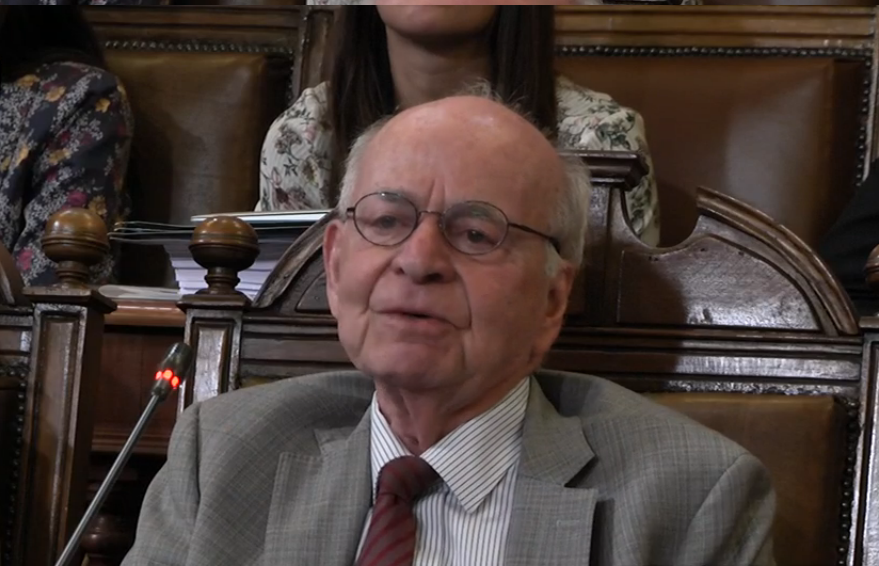
Enzo Devoto, Endrocrinologist
Enzo believes in asking for certificates, specially to reject any other pathology that has anything to do with identity. ‘It should be rejected people with mental disorders that believe they are trans and because of their illness are diagnosed and treated. If one of them is simultaneously trans and has said mental pathology, once treated by the psychiatrist and authorized by him, I don’t have problems to start the hormone treatment for the person who asked for it’, explains. However, he recognizes that this must be done without mistreatment as it used to hapen in the past. He affirms that anybody can change the trans identity because it is something natural.
The certificates request is something that Rodrigo sets in doubt. ‘It doesn’t have a real basis because attentions should be more integral in all specialties. Many colleagues say that I don’t have formation into this, so the question for me is, why it doesn’t botter them? I get that their formation, specialty does not include it, but is when you find something you don’t know you are studying. Besides, it is clear that there is no psychiatric pathology that can make believe someone what is and what isn’t transgender’.
He proposes the case of children whose professional accompaniment should be from an integral focus to ensure a safe environment.
How to move on?
For Ricardo it is important to recognize the identity, specially for teenagers, because they are a vulnerable people and with high rates of suicide. He proposes to question the gender funtioning and go to less binary beliefs.
‘What it is proved is that reject a trans person does damage’, says. That is why he call his colleagues to be careful, ‘at the doctors’ principle of do not harm, what I see is that many professionals do harm when making strugles’.
All five agree in that it’s necessary to get informed and educated on the subject. ‘If there is a specialist that doesn’t know, he/she/they can treat people humanly’, says Enzo, ‘Not everything is biology, a lot of it is humanity and social sense’.
For Javi, as a trans person and part of the profession, it is important to be respectful. ‘For example, on the genitals subject, many of them ask if they have been under vaginoplasty or phalloplasty. They should try not to ask those kind of questions unless it is completely necessary, because that can ruin the day of a person’.
‘Try to listen more than supossed experts and watch testimonies’, says. A good practice for Camilo, who insists that every health care workers should be trained to attend trans people.
Finally, Rodrigo ask to his colleagues from different specialties to have real empathy. ‘When you understand the history, and that there has been place for people out of the binary gender sex, you understand their right. Non pathologizing seems something natural and not a theoretical questioning’.
Text: Cristina Soto Quiroz
